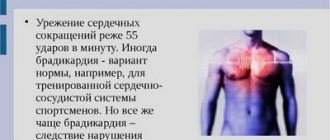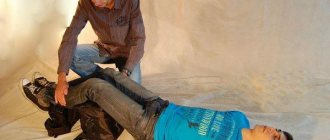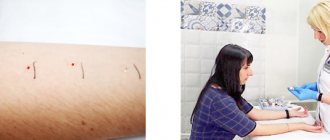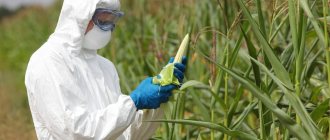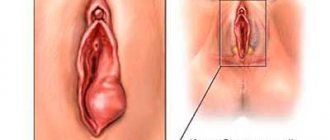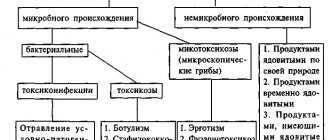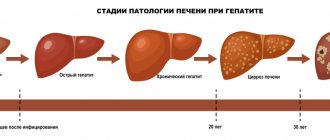Coughing is the body’s protective reaction to an irritant. Thanks to it, the respiratory tract is cleansed of dust, sputum and other microorganisms that cause inconvenience to the entire body.
There are two types of cough - wet cough and dry cough. In the case of the first, the process is much simpler; the body gets rid of mucus, which contains harmful microorganisms. This is how the treatment takes place. In the second type, the situation is more unpleasant, a dry cough does not bring relief, often only new attacks. This often severely irritates the pharynx, leads to pain in the chest and throat, and damages the tissue of the mucous membrane.
How to treat a wet cough?
November 4, 2021
10530
4.9
2
Content
- Causes of wet cough
- Symptoms of a wet cough
- How to treat a wet cough
- 8 most effective drugs for wet cough
- Ascoril
- Ambrohexal
- Fluimucil
- Mukaltin
- ACC
- Ambrobene
- Plantain and coltsfoot syrup from Evalar
- Lazolvan
- Traditional methods of treating wet cough
A cough is called “wet” when it is accompanied by the formation of sputum. And the main task of antitussives in this case is to liquefy this sputum and remove it. In the first days of treatment, a wet cough may intensify, but it will no longer be as severe. Today, pharmacies offer a variety of cough medications: these include syrups, tablets, and lozenges. Such drugs should be prescribed exclusively by a doctor who will determine the cause of the cough; self-medication is inappropriate here.
depositphotos_146078611_l-2015.jpg
The cough itself can also be different: for example, unproductive (dry - characterized by the absence of sputum discharge or its very scanty amount), unproductive (sputum production is insignificant, but frequent and/or prolonged coughing attacks are required to remove it) or productive (wet - sputum is produced in sufficient quantities, coughing is easy).
Causes of wet cough
A wet cough occurs when there is inflammation in the respiratory system. Coughing is a reflex defense reaction of the body designed to clear the airways of sputum and germs.
Among the most common causes of wet cough are:
- respiratory viral diseases;
- bronchitis;
- pneumonia (pneumonia);
- bronchial asthma;
- whooping cough.
In addition, a wet cough is possible with chronic diseases such as tuberculosis, heart failure, bronchiectasis, and cystic fibrosis.
Read also How to treat dry cough: top 5 drugs The best drugs for dry cough in adults.
Characteristic signs of dry cough
Experts define three types of dry cough:
- Deaf. May be a symptom of a lung tumor or tuberculosis.
- Barking. As a rule, it is a consequence of a viral disease that affects the vocal cords.
- Nasadny. Most common in children, a concomitant symptom of the disease is whooping cough.
Also, depending on the duration of cough, there are two types: acute (up to three weeks) and chronic (for several months or more).
Symptoms of a wet cough
With the help of a wet cough (with the release of thick sputum), the bronchi and lungs are cleared of mucus. In addition to coughing, a person may experience chest pain and wheezing in the lungs. Usually a person coughs most at night, which significantly impairs his sleep. In addition to a debilitating cough, there is a deterioration in general health, dizziness, shortness of breath, lacrimation, runny nose and increased body temperature.
A wet cough must be treated, because it is fraught with complications. If sputum stagnates in the bronchi and lungs, bacteria will begin to multiply in it (in this case, ARVI will be complicated by purulent bronchitis or pneumonia). If a bacterial infection is added to a viral infection, the person will have the following symptoms: fever, deterioration in general health, sputum mixed with pus. In such cases, the doctor prescribes antibiotics.
How to distinguish a dry cough from a wet one
Photos from open sources
How to understand the cause of a cough
To understand the cause of a cough, you need to answer several questions:
- When does a cough occur? At night during sleep, after exercise or after eating?
- Have you had contact with people with ARVI in the last few days?
- Do you have any gastrointestinal disease or symptoms of stomach upset?
- Is there sputum, what does it look like?
- Did the cough appear during birch flowering or after contact with other allergens?
- Is the cough accompanied by other symptoms? Do you have fever, chills, weakness, or are you losing weight?
- Have you been under a lot of stress recently?
- Is the office or apartment well ventilated, is there a humidifier?
- How long does the cough last? Is it decreasing or increasing?
If you characterize a cough, it will be approximately clear where to look for the cause and how urgently you need to see a doctor. Any type of cough that lasts more than a few days, interferes with sleep, is accompanied by a high fever, or produces a pronounced colored discharge is a reason to see a doctor. You need to go to an appointment especially quickly if your cough makes it difficult to inhale and exhale when you are short of breath.
How to treat a wet cough
Treatment of wet cough is aimed at stopping the development of the inflammatory process, liquefying and removing mucus, and relieving bronchial spasm. In each specific case, the doctor selects an individual cough treatment regimen, taking into account its causes, the severity of symptoms, existing chronic diseases, etc. Typically, the treatment of a wet cough involves prescribing the following drugs (one or more):
- Mucolytics.
These drugs stimulate the formation of sputum, thin it and help it come out faster. - Expectorants.
Such drugs stimulate the cough reflex, due to which mucus leaves the bronchi faster. - Bronchodilators (antispasmodics).
They are used to expand the lumen of the bronchi, relieve spasms, due to which the airways are quickly cleared of thick mucus. - Anti-inflammatory and antiviral agents.
Such drugs can be in tablets, spray or syrup form. - Antibiotics.
Prescribed if the cause of the cough is a bacterial infection (or a bacterial infection has joined the viral one).
In order to improve the general condition while treating a wet cough, a person needs to consume enough fluids and eliminate foods that irritate the throat from the diet. Now let’s look in more detail at each medicine that is prescribed for cough.
- Mucolytics.
Mucolytics increase the volume of sputum, dilute it and remove it from the respiratory tract. Active ingredients of mucolytics: bromhexine, acetylcysteine, ambroxol, carbocisteine. If the drug is chosen correctly, you can get rid of a wet cough in a week. - Expectorants.
If the sputum is excessively viscous, expectorants help thin it and remove it faster. Typically, such preparations contain extracts of plantain, marshmallow, and thyme. The active synthetic substances are bromhexine, chymotrypsin, trypsin. - Bronchodilators.
These are serious medications that should only be prescribed by a doctor. Similar cough medications relieve spasms in the bronchi. Typically, spasm is observed with bronchitis, asthma, bronchopulmonary dysplasia. Bronchodilators can also be used as inhalations. - Anti-inflammatory drugs.
Such drugs are prescribed for both wet and dry coughs, the cause of which is viruses, bacteria or allergens. - Antihistamines.
Remedies from this group are used if the cause of the cough is an allergy. - Drugs to inhibit cough receptors.
These drugs affect the cough centers located in the brain, as well as the cough receptors and nerves located in the respiratory tract. They also work as anesthetics and are prescribed to adults and children to treat both wet and dry coughs. - Combined drugs.
These cough remedies are the most effective and relieve negative symptoms literally on the second or third day. Combination cough medications contain expectorants, bronchodilators, mucolytics and antihistamines. Some even have an antipyretic effect, so they are prescribed for influenza and ARVI.
Causes of wet coughPhotos from open sources
Antitussives
Central action
narcotic drugs suppress the cough reflex in the medulla oblongata and depress the respiratory center. They are addictive.
- codeine (Codelac), morphine, ethylmorphine hydrochloride, dextromethorphan (Grippex).
Non-narcotic - have an antitussive and antispasmodic effect, without depressing breathing and without causing addiction.
- butimirate (Intussin, Sinekod), glaucine (Broncholitin, Glauvent), oxeladine (Tusuprex, Paxeladin).
Peripheral action
They act as mild analgesics on the receptors of the respiratory mucosa and reduce the cough reflex. One of the most important effects of medications in this group is hydration of the mucous membranes. They are used in the form of aerosols and steam inhalations to reduce the viscosity of secretions and against irritation of the mucous membrane.
Local anesthetics are used mainly in hospitals to stop the cough reflex during bronchoscopy.
- benzocaine, tetracaine, lidocaine, prenoxdiazine (Libexin).
Enveloping preparations of plant origin are used for irritation of the mucous membrane of the upper respiratory tract. They create a protective layer for the mucous membrane of the nasopharynx and oropharynx, which reduces the cough reflex.
- extracts of eucalyptus, acacia, wild cherry, various infusions, syrups, teas, lozenges, lozenges, honey.
Inhalation of water vapor with the addition of various components (sodium chloride, sodium bicarbonate, ammonium chloride, plant extracts) is the most common way to moisturize the mucous membranes.
Ascoril
"Ascoril" is a combination drug for the complex treatment of wet cough, which contains several active substances: salbutamol, guaifenesin and bromhexine. "Ascoril" is a mucolytic and bronchodilator with an expectorant effect. The drug is usually prescribed for such serious problems as obstructive bronchitis and pneumonia, that is, in cases where the sputum is difficult to clear and is very thick. "Ascoril" acts quickly - relief occurs literally in the first days of taking it. But you need to remember about the side effects of Ascoril: some patients experience tachycardia, increased sweating, and dry mouth.
Ascoril
Glenmark Pharmaceuticals, India
As part of combination therapy for acute and chronic bronchopulmonary diseases, accompanied by the formation of difficult-to-separate viscous secretions: bronchial asthma;
tracheobronchitis; obstructive bronchitis; pneumonia; emphysema; whooping cough; pneumoconiosis; pulmonary tuberculosis. from 113
5.0 1 review
1019
- Like
- Write a review
Ambrohexal
This mucolytic drug is used for wet coughs to thin out mucus and remove it faster. "Ambrohexal" is inexpensive, but quite effective. The remedy is prescribed for acute and chronic bronchitis, pneumonia, asthma and other problems, one of the symptoms of which is a prolonged cough. "Ambrohexal" can be taken by adults and children from 6 years of age. To enhance the positive effect, in addition to the mucolytic, an antiviral or antibacterial agent is usually prescribed (you need to look at the clinical manifestations). Reviews from doctors and patients about the drug are mostly positive due to its complex action - the product removes phlegm in the most natural way possible. The cost of Ambrohexal is quite affordable, and there are no serious contraindications or side effects.
Ambrohexal
Hexal, Germany
Ambrohexal is a mucolytic and expectorant.
Indications for use: Acute and chronic diseases of the respiratory tract, accompanied by the formation of viscous secretions: - acute and chronic bronchitis; - pneumonia; - COPD; - bronchial asthma with difficulty in sputum discharge; - bronchiectasis; - treatment and prevention of respiratory distress syndrome (for syrup and solution for oral administration and inhalation). from 92
5.0 1 review
526
- Like
- Write a review
Fluimucil
This Swiss drug for wet coughs perfectly thins and removes mucus from the respiratory tract, being an analogue of “ACC”, although they have the same active substances. Some doctors are sure that Fluimucil is better than ACC because it is of better quality. And it costs much less, which is good news. Patients write in reviews that Fluimucil helps quickly remove phlegm from a wet cough. The only disadvantage of this product is that it is not available in all pharmacies.
Fluimucil
Zambon, Italy
Respiratory diseases accompanied by impaired sputum discharge (including bronchitis, tracheitis, bronchiolitis, pneumonia, bronchiectasis, cystic fibrosis, lung abscess, pulmonary emphysema, laryngotracheitis, interstitial lung diseases, pulmonary atelectasis /due to blockage of the bronchi by mucus plug/);
catarrhal and purulent otitis, sinusitis, incl. sinusitis (to facilitate the passage of secretions); for removing viscous secretions from the respiratory tract in post-traumatic and postoperative conditions. from 46
5.0 1 review
693
- Like
- Write a review
Mukaltin
These sour cough tablets have been familiar to us since childhood. The active ingredient “Mukaltina” is marshmallow root (that’s where this herbaceous smell comes from). "Mukaltin" is safe and cheap, it thins mucus and removes it. The positive effect of “Mukaltin” has been confirmed for decades, so doctors continue to prescribe it for coughs. The only drawback is that children often do not want to take these pills because they have a specific sour taste.
Mukaltin
Vifitech/Vilar, Russia; Medisorb, Russia; JSC "Tatkhimfarmpreparaty", Russia; Update, Russia; CJSC "Moscow Pharmaceutical Factory", Russia; JSC Avexima, Russia; JSC Pharmstandard-UfaVITA, Russia
Respiratory tract diseases (including laryngitis, tracheitis, bronchitis, bronchial asthma), gastritis, gastric and duodenal ulcers.
from 133
5.0 1 review
722
- Like
- Write a review
ACC
"ACC" is perhaps the most popular tablet for the treatment of wet cough. "ACC" is prescribed for bronchitis and pneumonia. The product thins mucus and helps it drain better. "ACC" is sold in the form of effervescent soluble tablets, which are prescribed to adults and children over 14 years of age. Doctors note the excellent effectiveness of the drug if you need to get rid of very viscous sputum. But ACC should not be taken at night - this can lead to congestion in the lungs. It is also contraindicated to take ACC alone in combination with other cough medications. Buyers in reviews say it works quickly, treats coughs well, is inexpensive and is available in all pharmacies.
ACC
Hermes Pharma, Germany; Wernigerode Pharma, Germany; Lindopharm, Germany
Respiratory diseases accompanied by the formation of viscous, difficult to separate sputum (acute and chronic bronchitis, obstructive bronchitis, tracheitis, laryngotracheitis, pneumonia, lung abscess, bronchiectasis, bronchial asthma, COPD, bronchiolitis, cystic fibrosis);
acute and chronic sinusitis; Otitis media from 92
5.0 1 review
1274
- Like
- Write a review
It is not advisable to self-medicate with a wet cough, it is fraught with complications
Photos from open sources
Mucolytics
Modern drugs, which are mainly prescribed for infectious and inflammatory diseases of the respiratory system, combine mucoregulatory and mucolytic properties, and also have a secretomotor effect.
- Mucolytics change the physicochemical properties and structure of bronchial mucus, causing it to liquefy and facilitate the removal of sputum.
- Mucoregulators change the ratio of liquid and dense parts of sputum, stimulate the synthesis of lysozyme by the epithelium and the formation of surfactant in the lungs.
Proteolytic enzymes
These drugs break down protein and polypeptide molecules. They are capable of thinning even thick purulent sputum, acting in affected tissues without affecting healthy ones. Such drugs are often administered by inhalation, intratracheal and intrabronchial routes.
- trypsin, chymotrypsin, ribonuclease, dornase alpha.
Synthetic drugs
The drugs bromhexine, ambroxol (Ambrobene, Lazolvan), acetylcysteine (ACC, Fluimucil), carbocysteine and their analogues combine several properties and are widely used by specialists. Such drugs are optimal for the treatment of respiratory diseases and cough, especially in children. On the pharmaceutical market there is a large selection of release forms for different ages: syrups, solutions and drops, tablets and dragees.
Side effects of mucolytics
- Taking mucolytics can provoke allergic reactions, pulmonary hemorrhages, bronchospasm, and impair liver and kidney function.
- Use is limited to children under 3 years of age, pregnant and nursing mothers, and persons with liver and kidney diseases.
- Mucolytics, like expectorants, are undesirable to prescribe to bedridden patients due to the accumulation of liquid secretions and the effect of “flooding” the lungs.
- The clinical effect when taking expectorants and mucolytics is observed, as a rule, after 4-8 days. Before this, there may be an “imaginary deterioration” of the condition.
Ambrobene
Another popular drug for wet cough. A mucolytic with an expectorant effect contains the active substance ambroxol, which helps to thin and remove mucus from the lungs and stimulates expectoration. Within 30 minutes after taking Ambrobene it begins to act, and the positive effect lasts for 6-12 hours. It is very important to drink plenty of fluids during treatment with Ambrobene. This cough remedy is prescribed to adults and children over two years of age. The duration of treatment with the drug should not exceed 4-5 days.
Ambrobene
Merkle GmbH, Germany
Ambrobene is a mucolytic expectorant.
It is used for acute and chronic diseases of the respiratory tract, which are accompanied by impaired formation and discharge of sputum. from 91
5.0 1 review
1686
- Like
- Write a review
What to do if your cough bothers you
First of all, you need to sit or stand up and try to breathe in through your nose. If inhalation and exhalation through the nose is successful, then everything is fine for now. If you can’t take a breath, then you need to wake up someone close to you, try to scream or say something. If it works, then breathing is preserved - that’s not bad. If you can’t scream and breathe, you need to urgently call an ambulance.
If at night the cough interferes so much that it is impossible to sleep, you need to find out whether an ambulance and hospitalization are required.
While the ambulance is on the way, you need to:
- open the window to allow fresh cool air to enter;
- turn on hot water in the bathroom and breathe in the steam;
- calm down.
Plantain and coltsfoot syrup from Evalar
This drug is indicated for both wet and dry coughs. Effective and affordable. “Plantain and coltsfoot syrup” soothes coughs and has a good expectorant and cooling effect. Plantain and coltsfoot are excellent natural anti-inflammatory agents: they relieve irritation, disinfect, thin mucus, soothe and regenerate mucous membranes. To stimulate local immunity, the syrup is enriched with vitamin C. It also contains peppermint essential oil, which reduces the severity of cough, coats the mucous membrane of the throat, and cools it. There is no alcohol in Plantain and Coltsfoot Syrup, so taking it does not affect the speed of reactions. The drug has a pleasant taste.
Plantain and coltsfoot syrup
Evalar, Russia
Plantain and coltsfoot syrup from Evalar helps to liquefy and remove mucus.
Recommended for dry and wet cough. from 85
4.0 1 review
250
- Like
- Write a review
Expectorants
This group of drugs stimulates the secretion of bronchial glands and the movement of the epithelium, increases the volume of sputum and slightly reduces its viscosity.
Direct action
Resorptive (direct) action drugs directly affect bronchial secretion. They are used in the form of tablets, solutions and mixtures.
- potassium iodide, sodium iodide, sodium bicarbonate, ammonium chloride.
Reflex action
Reflex (indirect) action drugs irritate the stomach receptors, causing a reflex increase in gland secretion and stimulating muscle contraction when coughing. Used in the form of infusions, powder, tablets, dry extract, collections, etc.
- thermopsis herb (Codesan), terpinhydrate (Coldrex), licorice root (Doctor MOM), marshmallow (Mukaltin), guaifenesin (Tussin), ammonia-anise drops and others.
Herbal remedies
Essential oils of medicinal plants have expectorant, anti-inflammatory and weak antiseptic effects.
- thyme herb (Bronchicum), eucalyptus leaf (Pectussin), ivy leaves (Gedelix), licorice (Glyceram), oregano, coltsfoot, elecampane and other plants in various combinations.
A prerequisite for the development of the therapeutic effect of any expectorant medications is regular drinking of water to prevent dehydration.
Side effects and contraindications
The use of some drugs is limited in pediatrics, pregnancy and lactation, carbohydrate metabolism disorders, as well as in the acute period of certain diseases. A complete list of contraindications and restrictions is indicated in the instructions for the drug.
- Stomach. When taken orally, they irritate the gastrointestinal mucosa and increase the secretion of gastric juice, therefore they are not used for gastritis and peptic ulcers.
- Allergy. Plant extracts often cause allergic reactions and are contraindicated in bronchial asthma.
- Vomit. Reflex-action drugs strengthen not only the cough reflex, but also the gag reflex. Large doses cause nausea and vomiting. Young children, as well as those with central nervous system damage, should not use them, as respiratory arrest may occur.
- For children. Medicines from these groups significantly increase the volume of secretions. But small children are not able to fully expectorate sputum themselves. This can lead to congestion in the bronchi and re-spread of infection.
Lazolvan
The active ingredient of this mucolytic expectorant for wet coughs is ambroxol hydrochloride. "Lazolvan" is prescribed for acute and chronic bronchitis, pneumonia, obstructive pulmonary disease, asthma, bronchiectasis. The product helps well with non-productive cough - both in complex therapy and as a single drug. Without consulting a doctor, Lazolvan should not be taken for longer than 4-5 days. Lazolvan tablets are indicated for adults and children over 12 years of age.
Lazolvan
Boehringer Ingelheim, Germany
Lazolvan stimulates the serous cells of the glands of the bronchial mucosa, increases the content of mucous secretions and the release of surfactants (surfactant) in the alveoli and bronchi;
normalizes the disturbed ratio of serous and mucous components of sputum. By activating hydrolytic enzymes and enhancing the release of lysosomes from Clara cells, it reduces the viscosity of sputum. Increases the motor activity of the cilia of the ciliated epithelium, increases the mucociliary transport of sputum. After oral administration, the effect occurs within 30 minutes and lasts for 6–12 hours from 138
5.0 1 review
1413
- Like
- Write a review
Traditional methods of treating wet cough
In addition to medications for wet coughs, there are proven folk methods that help thin and remove mucus. Here are some of them.
- Milk with honey.
You need to heat a glass of milk, add a couple of teaspoons of honey and a pinch of soda. This drink perfectly thins and removes phlegm. Another recipe is milk with butter. This recipe is suitable if you have an irritated throat (the drink eliminates soreness and soothes the mucous membranes). - Milk with banana.
Add banana puree and a couple of teaspoons of cocoa to a glass of heated milk. Children will definitely appreciate this cough remedy. You need to drink the drink before going to bed. - Black radish.
Radish contains an essential oil with a bactericidal effect, plus black radish is an excellent stimulant for mucus discharge. To treat a cough, take 1 teaspoon of radish juice five times a day. To “extract” the juice of a black radish, you need to cut it into two parts, remove some of the pulp, and put honey in the resulting holes. If you don't have honey, you can simply grate the radish and add a little sugar. - Honey compress.
To relieve a cough, you can rub liquid honey on your chest, put parchment paper on top, and then cover yourself with a warm blanket. After half an hour, wipe off the honey with a damp cloth and wrap yourself up. - Chocolate for cough.
Another recipe that kids will love. Melt 100 g of butter, add 100 g of chocolate and 2 tbsp. l. cocoa. Warm everything over low heat or in a water bath until the ingredients are well mixed. Cool and you can spread this chocolate spread on bread or cookies for your child. It’s great if the baby agrees to drink it with warm milk.
